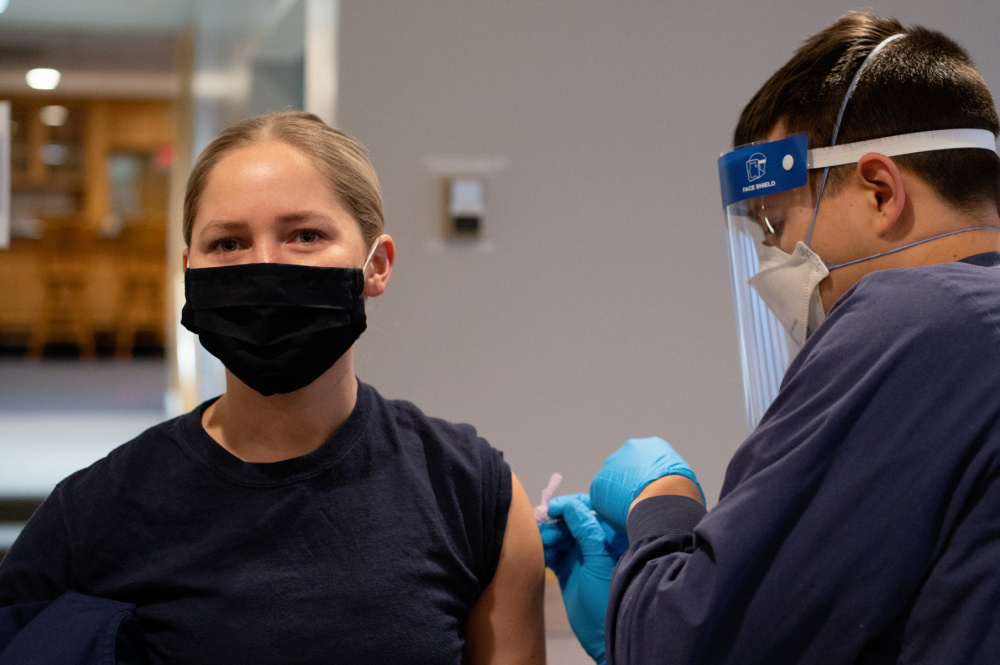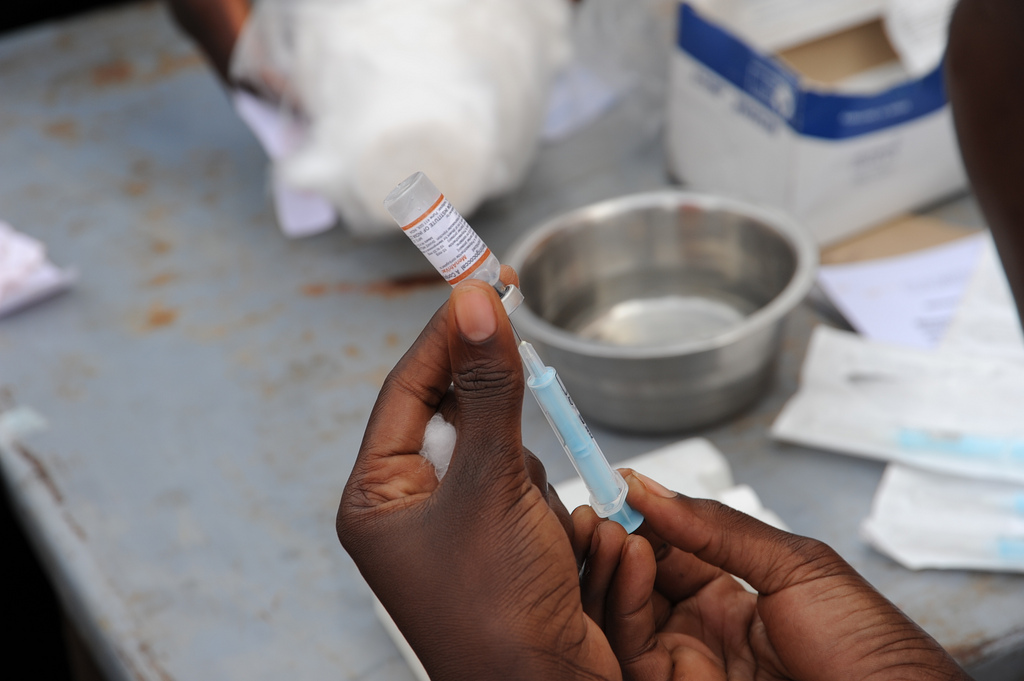The development of the COVID-19 vaccines is worthy of celebration. Never has a vaccine for a novel virus been so quickly developed, tested, and rolled out. Despite this success, we could have done much better. In particular, a recent study estimates that by allowing “challenge trials” in the early months of the pandemic, we would have completed the vaccine licensing process between one and eight months faster than we did using streamlined conventional trials. The study also provides a conservative estimate of the years of life that an earlier vaccine rollout would have saved: between 720,000 and 5,760,000. However, whether we should have used challenge trials depends on a number of ethical considerations.
Here is an extraordinary fact: we first genetically sequenced the virus in January 2020. Moderna then developed their RNA vaccine in just two days. But the F.D.A. could only grant the vaccine emergency authorization in late December — almost a year later. Over this period the virus killed approximately 320,000 U.S. citizens. The vast majority of the delay between development and approval was due to the time needed to run the necessary medical trials. Enough data needed to be collected to show the vaccines were effective and, even more importantly, safe.
Here’s how those trials worked. Volunteers from a large pool (for example, 30,420 volunteers in Moderna’s phase three trial) were randomly provided either a vaccine or a placebo. They then went about their lives. Some caught the virus, others didn’t. Researchers, meanwhile, were forced to wait until enough volunteers caught the illness for the results to be statistically valid. The fact that the virus spread so quickly was a blessing in this one respect; it sped up their research considerably.
So-called “challenge trials” are an alternative way to run medical trials. The difference is that in a challenge trial healthy (and informed) volunteers are intentionally infected with the pathogen responsible for the illness researchers want to study. The advantages are that statistically significant results can be found with far fewer volunteers far more quickly. If we vaccinate volunteers and then expose them to the virus, we’ll have a good idea of the vaccine’s effectiveness within days. This means faster licensing, faster deployment of the vaccine, and, therefore, thousands of saved lives.
Challenge trials are generally blocked from proceeding on ethical grounds. Infecting healthy people with a pathogen they might never otherwise be exposed to — a pathogen which might cause them serious or permanent harm or even death — might seem difficult to justify. Some medical practitioners consider it a violation of the Hippocratic oath they have sworn to uphold — “First, do no harm.” Advocates of challenge trials point out that slow, traditional medical trials can cause even greater harm. Hundreds of thousands of lives could likely have been saved had COVID-19 challenge trials been permitted and the various vaccines’ emergency approval occurred months earlier.
Admittedly, challenge trials effectively shift some risk of harm from the public at large to a small group of medical volunteers. Can we really accept greater risk of harm and death in a small group in order to protect society as a whole? Or are there moral limits to what we can do for the ‘greater good’? Perhaps it is this unequal distribution of burdens and benefits that critics object to as unethical or unjust.
Advocates of challenge trials point out that volunteers consent to these risks. Hence, permitting challenge trials is, fundamentally, simply permitting fully consenting adults to put themselves at risk to save others. We don’t ban healthy adults from running into dangerous water to save drowning swimmers (even though these adults would be risking harm or death). So, the reasoning goes, nor should we ban healthy adults from volunteering in medical trials to save others’ lives.
Of course, if a volunteer is lied to or otherwise misinformed about the risks of a medical trial, their consent to the trial does not make participation ethically permissible. For consent to be ethically meaningful, it must be informed. Volunteers must understand the risks they face and judge them to be acceptable. But making sure that volunteers fully understand the risks involved (including the ‘unknown’ risks) can be difficult. For example, a well-replicated finding from psychology is that people are not very good at understanding the likelihood of very low- (or high-) probability events occurring. We tend to “round down” low probability events to “won’t happen” and “round up” high probability events to “will happen”. A 0.2% probability of death doesn’t seem very different from a 0.1% probability to most of us, even though it’s double the risk.
Informed consent also cannot be obtained from children or those who are mentally incapable of providing it, perhaps due to extreme old age, disability, or illness. So members of these groups cannot participate in challenge trials. This limitation, combined with the fact that younger, healthier people may be more likely to volunteer for challenge trials than their more vulnerable elders, means that the insights we gain from the trial data may not translate well to the broader population. This could weaken the cost-benefit ratio of conducting challenge trials, at least in certain cases.
A further ethical worry about challenge trials is that the poor and the disadvantaged, those with no other options, might be indirectly coerced to take part. If individuals are desperate enough to access financial resources, for example for food or shelter they require, they might take on incredible personal risk to do so. This dynamic is called “desperate exchange,” and it must be avoided if challenge trials are to be ethically permissible.
One way to prevent desperate exchanges is to place limits on the financial compensation provided to volunteers, for example merely covering travel and inconvenience costs. But this solution might be thought to threaten to undermine the possibility of running challenge trials at all. Who is going to volunteer to put his life at risk for nothing?
There’s some evidence that people would be willing to volunteer even without serious fiscal compensation. In the case of blood donation, unpaid voluntary systems see high donation rates and higher donor quality than market-based, paid-donation systems such as the U.S.’s. As I write this 38,659 volunteers from 166 countries have already signed up to be Challenge Trial volunteers with “1 Day Sooner,” a pro-Challenge Trial organization focusing on COVID-19 trials. These volunteers expect no monetary compensation, and are primarily motivated by ethical considerations.
The advocates of challenge trials systematically failed to win the argument as COVID-19 spread across the globe in 2020. Medical regulators deemed the ethical concerns too great. But the tide may now be changing. This February, British regulators approved a COVID-19 challenge trial. When time-in-trial equates with lives lost, the promise of challenge trials may prove too strong to ignore.


